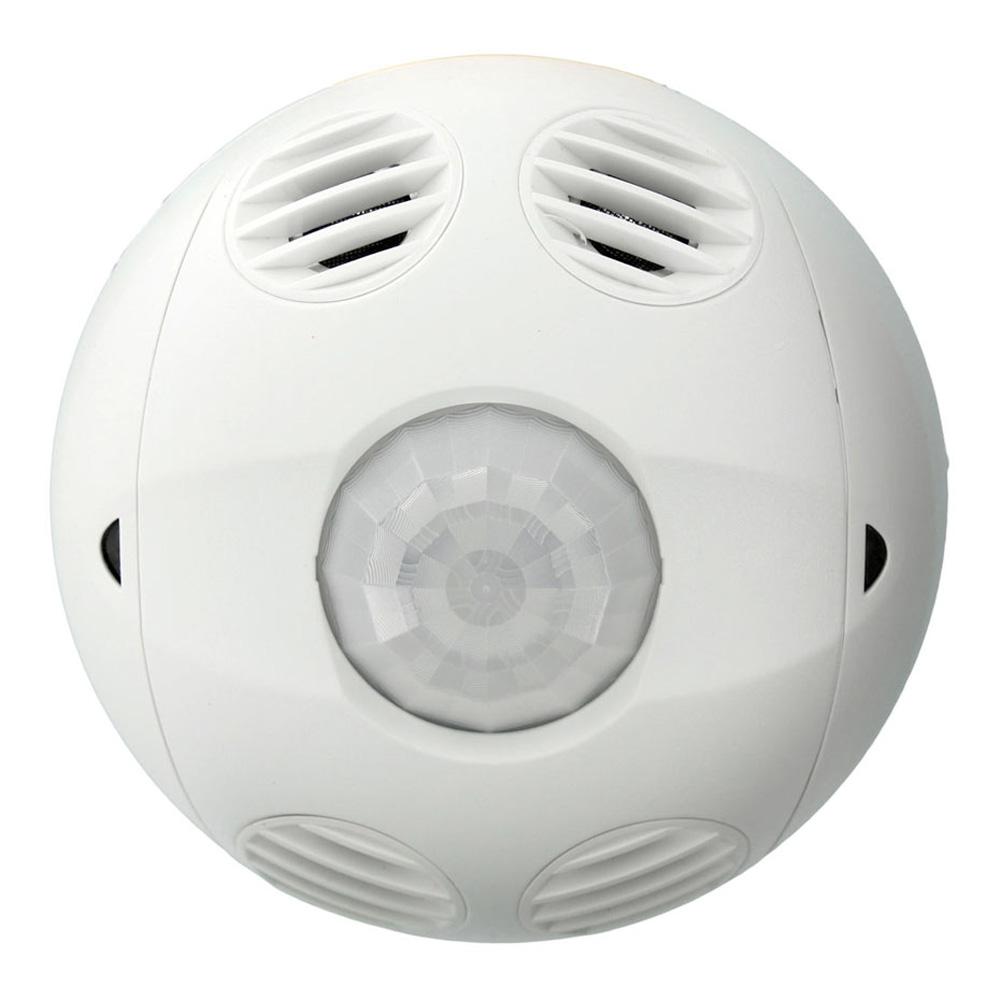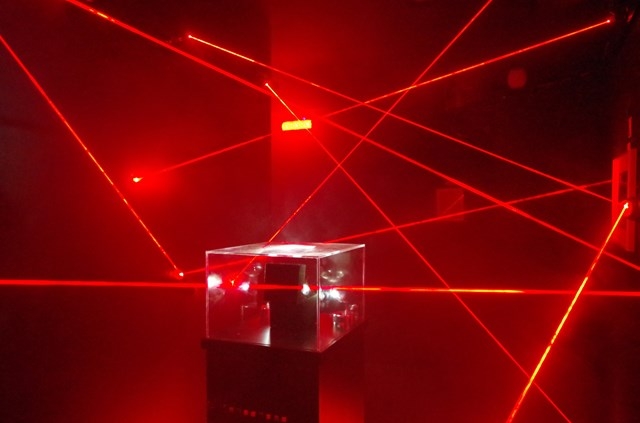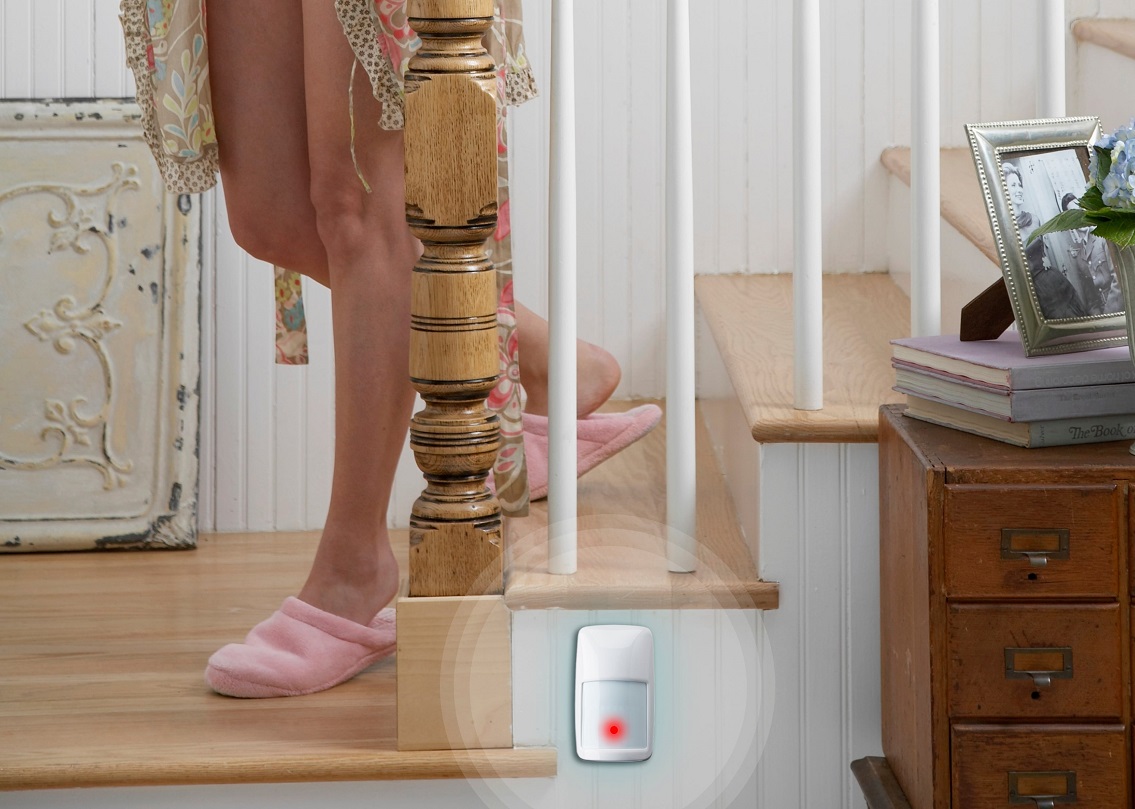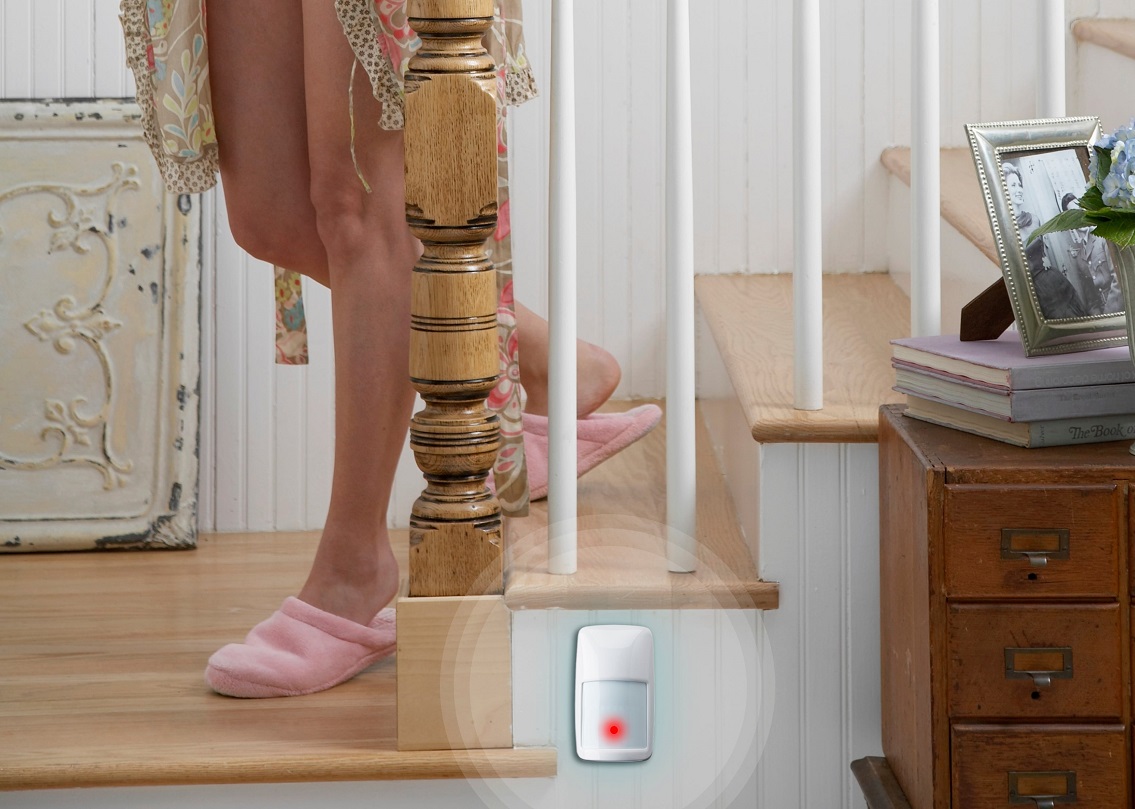Last Updated on March 4, 2022 by Alarm New England
While motion detectors are undoubtedly an integral part of your home security system, few people outside of the industry understand how these devices differentiate between and intruder and a person who is meant to enter the home.
This article will discuss exactly how motion detectors work and when you should install them in your home.
How Motion Detectors Work
There are a few options available when it comes to picking a motion sensor for your home, and each one functions slightly differently. Most of today’s motion detectors are wireless, electronic, and use either active or passive sensors.
Active Sensors
Active sensors are also referred to as radar-based motion detectors and they work by emitting ultrasonic sound waves. When an interference in the sound waves is detected, the sensor will then send a signal to sound an alarm.

Some active sensors will activate a light when tripped or even open a door as opposed to sounding an alarm.
Photosensors
Another type of active motion detector uses light instead of sound. If you’ve ever seen a spy movie where the main character has to pass through a bunch of invisible laser beams (revealed by chemical fog) to infiltrate a facility, you know what photosensors are. When something moves into the path of the beam, disrupting the flow of energy, the alarm goes off.

Some systems even illuminate a light beam on the intruder when he or she is detected. Consumer products like driveway alarm systems use similar technology to detect cars coming up to the home.
Passive Infrared Sensors
Also known as PIR motion sensors, this is the type of motion detector that is most commonly chosen to protect residential homes due to its cost-effectiveness and ease of use. These sensors detect infrared energy that is released from the body heat radiating off of humans and animals.

PIR sensors are intuitive and can come with a variety of features such as a 90-degree look down, so that no intruder will be able to sneak underneath the sensor’s range of vision.
Motion Detector Set up and Installation
While you may be able to figure out how to set up your motion detectors on your own, many people benefit from getting the help of a professional to ensure the equipment is set up correctly.
When motion detectors aren’t installed the right way, they’re far more likely to result in false alarms, becoming a source of frustration rather than peace of mind.
Should you opt to install motion detectors, enlist the help of a security professional to either set it up for you or show you exactly where to mount it on the wall.
Another reason to consult with a security expert is that motion detectors may not always be the best method of protection for your property. If you have small children or pets in the home, you might want to consider adding window sensors and glass break sensors to your home or apartment security system instead.
Where Should Motion Detectors be Installed?
The first place to consider is near your front door as most intruders will try to gain access to the front door before trying to open your windows.
Second, we suggest placing them in hallways or living rooms that an intruder would have to traverse to reach their primary target: the master bedroom.
Motion detectors are not only used for keeping intruders out; if you have little ones at home that you want to keep safely within a certain part of the house, you can install a self-monitored motion detector that will notify you when the device detects any movement in the off-limits part of your home.
Are Motion Detectors Necessary?
The benefits of having motion detection technology in your home are numerous. When used in conjunction with other security measures like glass break detectors, motion detectors are highly effective.
You can never be too cautious when it comes to protecting your family and since we can’t physically be everywhere at once, motion detectors provide an extra layer of security and peace of mind.

